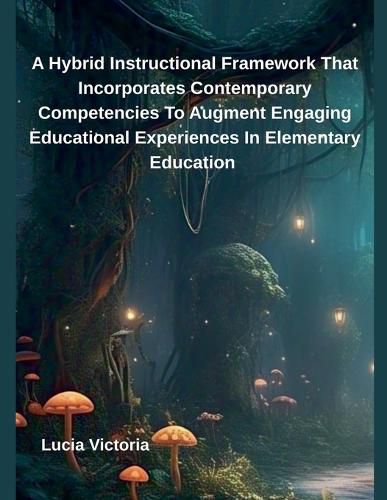Readings Newsletter
Become a Readings Member to make your shopping experience even easier.
Sign in or sign up for free!
You’re not far away from qualifying for FREE standard shipping within Australia
You’ve qualified for FREE standard shipping within Australia
The cart is loading…






This title is printed to order. This book may have been self-published. If so, we cannot guarantee the quality of the content. In the main most books will have gone through the editing process however some may not. We therefore suggest that you be aware of this before ordering this book. If in doubt check either the author or publisher’s details as we are unable to accept any returns unless they are faulty. Please contact us if you have any questions.
The National Education Policy (NEP) 2020 marks a significant paradigm shift in the country's educational landscape. With an emphasis on holistic and flexible learning, the NEP 2020 recognizes the significance of technology-enabled education to bridge gaps, ensure access and enhance the quality of learning experiences. Building on India's rich cultural heritage and the aspirational aims of 21st century education, this policy offers a complete overhaul of the educational system and its regulation and governance. One of the key aspects emphasized in the policy is the adoption of blended learning methodologies. The relevance of blended learning aligns seamlessly with NEP 2020's vision for transforming education in India. Blended learning, which combines traditional classroom instruction with online elements, directly addresses the NEP's call for a multidisciplinary and skill-oriented approach. By integrating digital tools, blended learning can offer personalized learning pathways, promote critical thinking and encourage self-directed learning - all essential components of the NEP's learner-centric paradigm. This innovative approach not only addresses the challenges posed by traditional rote- based education but also prepares students to thrive in an increasingly interconnected and technology-driven world. Overall, the NEP 2020's forward-looking principles align with blended learning's capacity to modernize education, making it a relevant and promising strategy for the educational landscape in India.
$9.00 standard shipping within Australia
FREE standard shipping within Australia for orders over $100.00
Express & International shipping calculated at checkout
This title is printed to order. This book may have been self-published. If so, we cannot guarantee the quality of the content. In the main most books will have gone through the editing process however some may not. We therefore suggest that you be aware of this before ordering this book. If in doubt check either the author or publisher’s details as we are unable to accept any returns unless they are faulty. Please contact us if you have any questions.
The National Education Policy (NEP) 2020 marks a significant paradigm shift in the country's educational landscape. With an emphasis on holistic and flexible learning, the NEP 2020 recognizes the significance of technology-enabled education to bridge gaps, ensure access and enhance the quality of learning experiences. Building on India's rich cultural heritage and the aspirational aims of 21st century education, this policy offers a complete overhaul of the educational system and its regulation and governance. One of the key aspects emphasized in the policy is the adoption of blended learning methodologies. The relevance of blended learning aligns seamlessly with NEP 2020's vision for transforming education in India. Blended learning, which combines traditional classroom instruction with online elements, directly addresses the NEP's call for a multidisciplinary and skill-oriented approach. By integrating digital tools, blended learning can offer personalized learning pathways, promote critical thinking and encourage self-directed learning - all essential components of the NEP's learner-centric paradigm. This innovative approach not only addresses the challenges posed by traditional rote- based education but also prepares students to thrive in an increasingly interconnected and technology-driven world. Overall, the NEP 2020's forward-looking principles align with blended learning's capacity to modernize education, making it a relevant and promising strategy for the educational landscape in India.